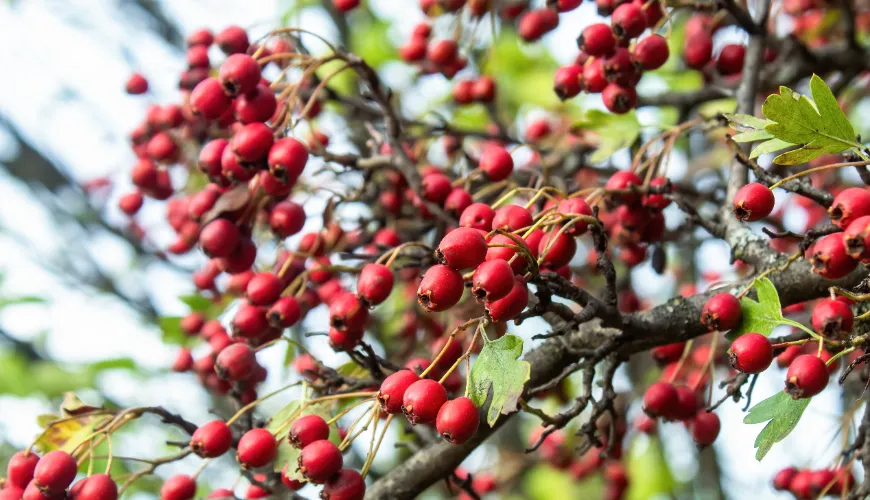
Autumn Fatigue and Its Impact on the Psyche and Body

Why We Feel Tired in Autumn and How to Combat It
The Indian summer is slowly coming to an end, the leaves are turning yellow, and the days are getting shorter. Many people begin to complain about a peculiar drowsiness, loss of energy, and lack of motivation during this time. Autumn fatigue becomes a topic not only of casual conversations but also of online discussions. It's no wonder that keywords like autumn fatigue discussion and autumn fatigue symptoms are among the most searched during these months.
But what exactly affects our physical and mental well-being in autumn? And how can we best combat this fatigue so we can enjoy even the gloomy season?
How Autumn Affects Our Energy
One of the main culprits of autumn fatigue is undoubtedly the shortening daylight. The human body is strongly influenced by the natural light cycle – just like other creatures, we are motivated by light for activity and by darkness for rest. When it's dark in the morning for a long time and it gets dark in the afternoon, it disrupts the natural cycle of sleep and wakefulness.
Changes in light levels affect the production of hormones, especially melatonin, responsible for regulating sleep. With increasing dusk, melatonin in the body rises, making us sleepier than usual. This is often accompanied by a decrease in serotonin, the happiness hormone, which is partly dependent on sunlight.
Try our natural products
It's logical that many people describe not only increased drowsiness in autumn but also a drop in mood, loss of motivation, and general lethargy. It's no coincidence that in discussions about autumn fatigue, words like no energy, worse every day, or I feel lifeless often appear.
Symptoms That Shouldn't Be Underestimated
Although mild fatigue is common and usually temporary during this period, it can sometimes be a warning sign. So what are the most common symptoms of autumn fatigue?
Even when we get enough sleep, fatigue catches up with us, and concentrating can be almost superhuman – we forget what we wanted, and everything annoys us more. We are more often struck by colds or other infections, our mood swings between sadness and despair, and our constant craving for sweets or something really fatty doesn't help our peace of mind. And what about motivation? It's often at freezing point, even for things we used to do effortlessly.
In some cases, these symptoms can turn into a more serious problem, such as seasonal affective disorder (SAD), a depressive state linked to the season. If fatigue persists and affects daily life, it's advisable to consult a specialist.
Discussions About Autumn Fatigue
When browsing various online forums dedicated to the topic autumn fatigue discussion, we can see that people describe their problems very similarly. They most often complain about a total loss of energy, trouble waking up, and a worsened mood. Some write that they feel as if they are in a permanent fog – the body operates on autopilot, but the mind can't focus on anything properly.
"I feel like a phone with a dead battery that doesn't charge overnight," states one user in a popular discussion on the Modrý koník forum. This analogy very well captures the reality for many people during autumn.
Interestingly, autumn fatigue doesn't spare even those who otherwise lead an active and healthy lifestyle. It turns out that the influence of environment and biological rhythms is so strong that sometimes even regular exercise and a balanced diet aren't enough.
How to Prepare for and Manage Autumn Fatigue
Although autumn fatigue is unpleasant, there are many ways to mitigate its effects. The foundation is respecting your body and adjusting your daily routine to current conditions.
One of the most effective steps is to try to expose yourself to as much daylight as possible, even when it's cloudy. A walk in nature during noon can work wonders – not only does it help the body set the right biorhythm, but it also refreshes the mind. If the weather permits, it's worth opening windows and letting as much natural light into the interior as possible.
Other important measures include:
- Regular sleep schedule – going to bed and waking up at the same time
- Balanced diet – rich in seasonal vegetables, fruits, legumes
- Sufficient exercise – even light exercise promotes the production of endorphins
- Supplementing vitamins, especially vitamin D, which is often lacking in autumn and winter
- Mental hygiene – dedicating time to hobbies, rest, and relaxation
- Limiting stress – through meditation, breathing exercises, or simply allowing yourself to slow down
According to experts from the Mayo Clinic, the key to managing seasonal mood swings is precisely a combination of natural light, adequate sleep, and an active lifestyle.
When Autumn Fatigue Signals Something More
It's important to mention that exhaustion may not only be due to the change of season. Chronic fatigue that lasts several weeks and worsens can be a symptom of anemia, thyroid problems, or a lack of certain nutrients. If there's no improvement even after adjusting your routine, a medical examination is warranted.
Similarly, people should be cautious if fatigue is associated with a drop in mood to the extent that it affects daily life. In these cases, help from a psychologist or psychiatrist may be necessary.
Small Autumn Rituals That Help
Autumn is a time when nature slows down and prepares for winter rest. Perhaps we should take an example from it as well. Instead of fighting fatigue at all costs, it's sometimes worth adjusting your pace and allowing yourself more rest and care.
Many people find comfort in small autumn rituals – a cup of warm tea, reading a good book, an evening by candlelight, or walks in a colorful forest. Even a small change in routine can help find joy in everyday life.
As a well-known Norwegian saying goes: "There's no bad weather, only bad clothing." Similarly, perhaps there is no bad season – just the way we approach it.
Autumn fatigue doesn't have to be just an unpleasant obligation, but also an opportunity to slow down and focus on ourselves. Conscious care for the body and soul will help us not only survive autumn but truly enjoy it.



